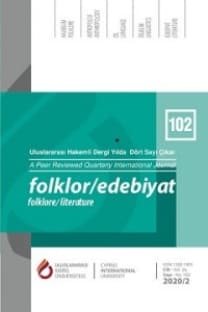The Spirit of Exchange and Promise : Hau and SOCIAL contract
Mauss, Hobbes, Hau, Social Contract
___
- Anderson, B. (1983). Imagined Communities: Reflections on the Origin and Spread of Nationalism. Verso: London and New York.
- Austin, J. (1962). How to do Things with Words. Oxford University Press: London.
- Benedict, R. (1934). Patterns of Culture. Houghton Mifflin Company: Boston and New York.
- Benveniste, E. (1971). Problems in General Linguistics. University of Miami Press.
- Bourdieu, P. (1990). The Logic of Practice. Translated by Richard Nice, Stanford University Press: Stanford.
- Crapanzano, V. (1995). The moment of Prestidigitation. In Prehistories of the Future. Ed. by Elazar Barkan and Ronald Bush. Stanford: California.
- Derrida, D. (1981). Dissemination. Trans. by Barbara Johnson. The Athlone Press: London.
- Gauthier, D. (1977). The Social Contract as Ideology. Philosophy & Public Affairs, 6(2), 130–164.
- Gourgouris, S. (1996). Tarihle Düş Arasında Ulus Biçimi. Toplum ve Bilim. 70 (Fall).
- Graber, D. (2001). Toward An Anthropological Theory of Value. The False Coin of Our Own Dreams. Palgrave: New York.
- Hobbes, H. (1991). Chapter XIV. Of the first and second Naturall Lawes, and of Contracts [64]. In Leviathan. Ed. by Richard Tuck, Cambridge University Press: New York.
- Honig, B. (1993). Political Theory and the Displacement of Politics. Cornell University Press: Ithaca New York
- Lacan, J. (2001). Ecrits. Trans. By Alan Sheridan. Routledge: London.
- Laclau, E., Mouffe, C. (2001). Hegemony and Socialist Strategy: Towards a Radical Democratic Politics. Verso: London.
- Mauss, M. (1990). The Gift. Translated by W.D. Halls. Norton: London.
- Mauss, M. (1997). Gift, Gift. In the Logic of the Gift. Edited by Alan Schrift. Routledge: New York and London.
- Ricoeur, P. (1965). The political paradox. In Ricoeur, P. (1998). History and Truth (fifth edition). Translated by Charles A. Kelbley. Evanston: Northwestern University Press.
- Sahlins, M. (1997). The Spirit of the Gift. In The Logic of the Gift (1997). Ed. by Alan D. Schrift, Routledge: New York and London.
- Zizek, S. (1989). The Sublime Object of Ideology. Verso: London.
- ISSN: 1300-7491
- Yayın Aralığı: 4
- Başlangıç: 1994
- Yayıncı: -
GASTRO MEDYA VE GASTRO KÜLTÜRÜN KAVRAMSAL İNCELEMESİ
Türk Halk Şiirinde Öteki Gerçeklik Olarak İroni*
The Spirit of Exchange and Promise : Hau and SOCIAL contract
Nedim ’in “Köşk Kasidesi ”nin Tâhirü’l-Mevle vî Tarafından Şerhi
BİREYSEL BELLEKTEN KOLEKTİF BELLEĞE: DERGÂH'I SU BASINCA...
“Kafamda Bir Tuhaflık” Romanında Sosyal -Siyasal Ayrımlaşmanın Anlatılaştırımı
